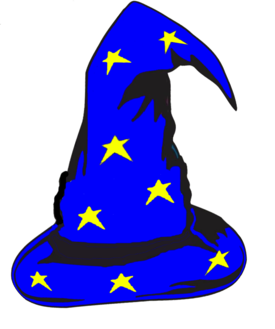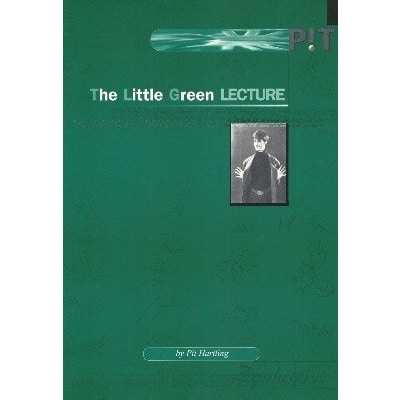Description
Pit Hartling’s Little Green Lecture describes five of Pit’s favorite card effects. Each is clearly and completely described and illustrated. One trick, Chaos is a virtually self-working trick involving two freely selected cards that completely stumped the experts at the FFFF gathering. The effect is extremely funny and the method is so clever that there is nothing you need to hide. You say exactly what you do, actually you describe the method in your patter but nobody will believe you, because actions and words create a hilariously conflicting situation that will have your audience laughing.
[This lecture booklet is available in printed form from our friends at H&R Magic Books]
Robin Hood
It is an interesting cross between “cards across“ and Roy Walton’s “Collectors“-plot: not only do three cards travel across, they also arrive between four others. A spectacular stunt: the four Aces are inside the cardcase which a spectator holds in his hands. In best Robin Hood-manner, the performer manages, with nothing but a single rubber band as a provisional bow, to shoot three selected cards invisibly straight across the room. They arrive inside the closed card case – exactly between the Aces!
Chaos: Mandlebrot’s Revenge
What in the beginning seems to be one of those notorious counting tricks with a mathematical basis, ends in complete chaos: Talking about ”keeping a precise mathematical system intact”, the performer throws the cards around wildly on the table until the deck is hopelessly mixed. Pushing the big lump of cards together however, he unerringly and instantly locates two freely chosen cards from out of the mess. In fact, the two selected cards have really been shuffled anywhere among the rest, the mathemagician actually knows neither the cards nor their positions and until the very end, he never even sees the face of a single card! As a bonus you may be pleased to hear, that ”CHAOS” is completely self-working.
Defect: The Electronic Deck
The performer introduces his latest invention: the electronic deck. He presses an imaginary button and the first of three selected cards rises from the center of the deck. On trying for the second card, however, technique seems to fail him: a wrong card rises from the deck. To the words: “Hm, perhaps just a loose connection.“, he gives the deck a little shake and the card visibly changes to the right one. On the third try, all the circuits have broken down: first nothing happens at all, then a small sign, attached to a thread drops out of the deck and announces the device’s present state: “DEFECT“. But there is still hope for the third selection when the electrician finds out that it’s not the whole deck that is defective but only a single card: he pulls on the thread and the last selection comes out of the deck. It is fixed to the thread with several tight little knots. And “DEFECT“ it is: the shaking obviously has not done the card well, it is misprinted and zigzagged. “And next time,…“ the performer breathes a sigh of relief, “… I will do the magic myself again.“
Triathlon: Mind Jogging
The performer announces his most difficult trick. A routine he has developed especially for other magicians, for “insiders“, as he says. What he plans to achieve really does sound pretty interesting: not only are three cards to be found, all three cards are chosen under stringent test-conditions: One spectator looks at any card somewhere in the center of the deck, a second spectator simply thinks about any card he likes and the third spectator doesn’t even know his freely selected card himself until the very end. All of this happens with a borrowed deck which the performer hardly ever touches. Nevertheless, he is able to identify all three selections correctly – real Mind Jogging!
Cupit: A card romance in three acts
In order to bring some romance to card magic, the performer appoints the joker as the god of love. And really: ”Cupit” just has to flutter around three chosen cards and they immediately find their perfect mates. Eventually, with the aid of a female spectator, all 52 cards of the thoroughly shuffled pack end up happily mated in seventh card-heaven and tender harp-sounds can be heard all around. Well, almost.
1st edition 1998; 37 pages.
word count: 11668 which is equivalent to 46 standard pages of text





